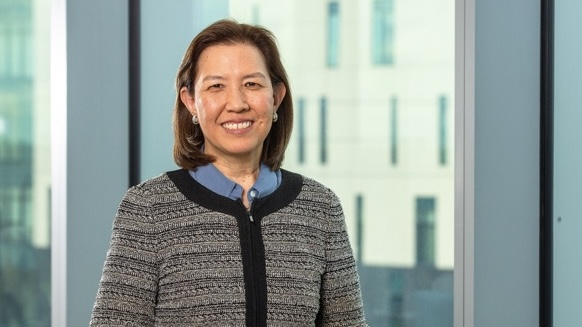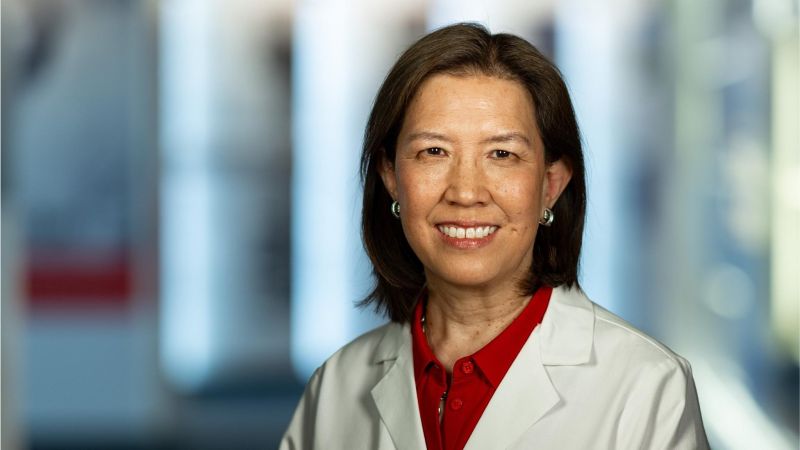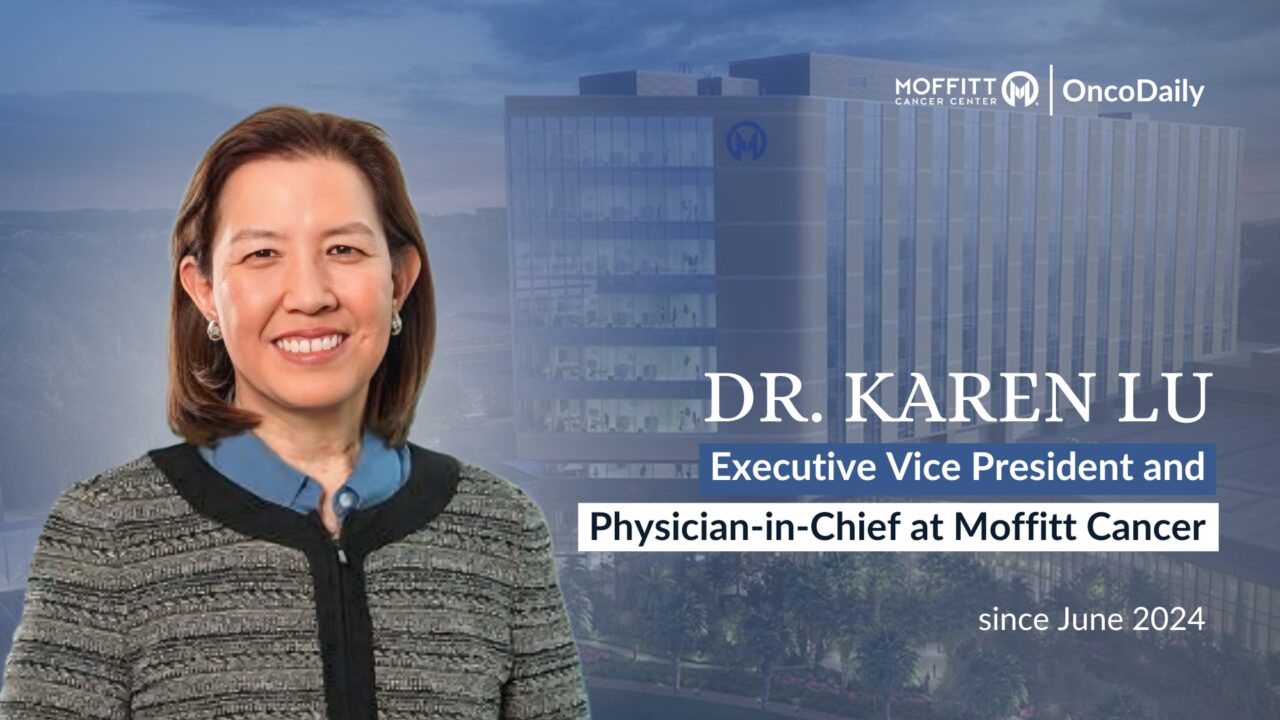Dr. Karen Lu is the Executive Vice President and Physician-in-Chief at Moffitt Cancer Center, since June 2024.
A leading physician-scientist, Dr. Lu focuses on the treatment of ovarian and endometrial cancers, as well as managing women at high genetic risk for these cancers. She is recognized for her research on hereditary gynecologic cancers.

With over 15 years of healthcare leadership, Dr. Lu previously chaired the Department of Gynecologic Oncology at MD Anderson Cancer Center and co-directed its Clinical Cancer Genetics program. She also served as ad interim Chief Clinical Officer there.
Dr. Lu holds a bachelor’s degree from Harvard University, a medical degree from Yale University, and a Master’s in Healthcare Management from Harvard T.H. Chan School of Public Health.
She serves on the ASCO Research Committee, is the incoming president-elect of the Society of Gynecologic Oncology (SGO), and is a member of both the American Society for Clinical Investigation (ASCI) and the Association of American Physicians (AAP).

Karen Lu recently shared insights into her vision and goals for Moffitt Cancer Center:
What led you to choose Moffitt?
“I’m really excited about the growth of Moffitt. As an institution, Moffitt is on this incredible trajectory, not just in terms of the cancer center’s reach in Florida but also in terms of the impact that Moffitt has nationally in cancer research and developing innovative cancer treatments. I look forward to leading us on the path to saving more lives.”
What do you hope to accomplish in your first year?
“In my first year, I will be doing a lot of intentional listening. I love hearing what makes people proud to work at Moffitt, and I want to understand the patient perspective. So my first year will really be about meeting people, hearing their stories, asking what’s working and learning about opportunities for us to improve.”
What are your longer term goals for the institution?
“I’m really excited about the strategic plan for Moffitt. It’s so simple and yet so impactful. MoffittCare is about reaching more people, both in terms of prevention and treatment.
We also want to accelerate our discovery of new cancer therapies through research, with the goal of saving more lives. The cancer center’s emphasis on innovative cell therapy and other emerging areas of treatment is so incredibly exciting.
I want to meaningfully contribute to both improving care today but also continuing to have a huge impact in terms of decreasing deaths from cancer in the long term.”
What are the biggest opportunities and challenges within oncology?
“I think the biggest opportunity right now is harnessing the immune system to fight cancer. Moffitt is one of the leading institutions in developing novel immune therapies against both leukemia and lymphoma as well as the more common cancers such as breast, lung and colon cancer.
On the other hand, one of the biggest challenges in oncology is making sure patients understand the power of clinical trials. Sometimes people have the idea that there is a drug that’s worked in a mouse, and now we’re testing it in humans. That’s rarely the case. Most of the time we are doing clinical trials on drugs that have already been through several human trials, and we’re looking to see if the therapy is going to be effective for that person’s specific cancer.
We know that outcomes often are better in individuals who are on clinical trials, so we need to be able to explain that to patients — the power of clinical trials and the potential that they can impact not just the future but the patient’s own care right now.”
What are you currently working on that you’re most excited about?
“I take care of women with gynecologic cancers and those at high risk for developing these cancers. For me, it’s so meaningful to be able to care for that patient with cancer, but also sometimes be able to prevent that cancer in family members. Taking care of cancer patients really drives me to develop new strategies for early detection and prevention.”
As a physician-scientist, how do you encourage doctors to engage more in the research side?
“For physicians, it’s really about developing a passion and trying to get a deeper understanding about a disease. Then you’re pushing to develop treatments based on that information. Sometimes you’ll see a patient who has an incredible response to a treatment, and it makes you start thinking: Why is this person having this response?
There are all these questions. As physicians, we need to continue observing and looking for answers. One of the things I appreciate about Moffitt is that here cancer research is a team sport. It is such a rewarding endeavor when you have individuals with different expertise come together to try to understand and solve a problem.
The future of cancer research really is a multidisciplinary team approach, which Moffitt excels at.”
What do you see as the future of cancer prevention?
“The future of cancer prevention is understanding each person’s risk for cancer, then instituting highly effective and patient-centered prevention options as well as screening. It’s also important to understand lifestyle risks.
For example, we know that obesity is highly associated with several cancers. So there needs to be more education and more novel approaches to educating individuals about lifestyle and risk.”
Do you have a personal connection to cancer?
“Both of my grandparents died of pancreatic cancer. It happened when I was around age 10, and I definitely believe that impacted how and why I chose to be an oncologist.”
How do patient relationships shape your outlook and motivate you?
“As I was transitioning to come to Moffitt from MD Anderson, one of the most difficult things was saying goodbye to my patients. As a gynecologic oncologist, my patients are women, and I believe that allows me to have a very deep connection with them. There are some women whom I had been seeing for over 10 years.
This transition just reminded me of the bonds and the privilege that we have as oncologists to care for our patients, and I look forward to building new bonds and relationships with my patients at Moffitt.”


